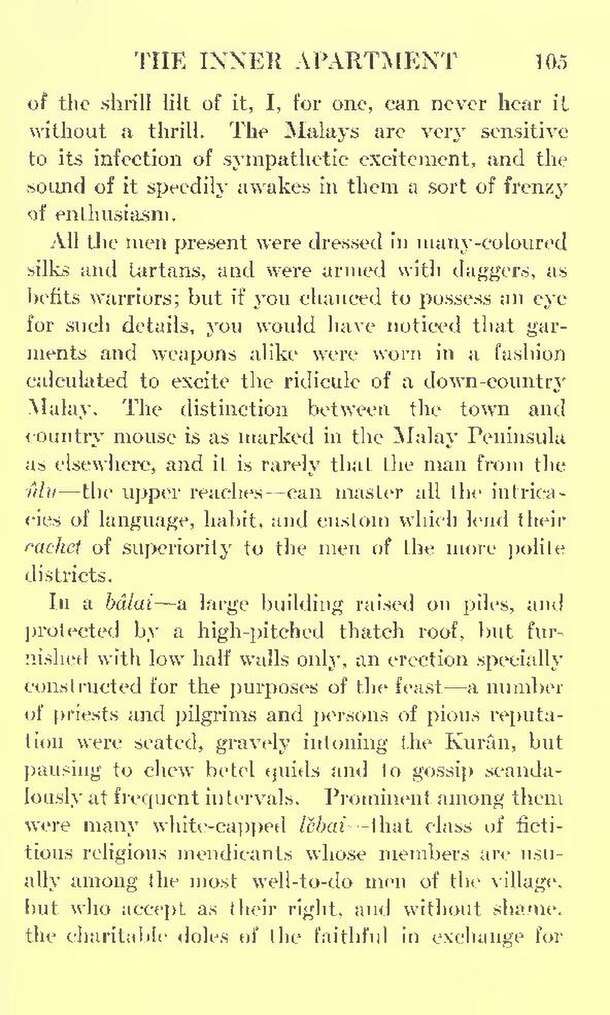of the shrill lilt of it, I, for one, can never hear it without a thrill. The Malays are very sensitive to its infection of sympathetic excitement, and the sound of it speedily awakes in them a sort of frenzy of enthusiasm.
All the men present were dressed in many-coloured silks and tartans, and were armed with daggers, as befits warriors; but if you chanced to possess an eye for such details, you would have noticed that garments and weapons alike were worn in a fashion calculated to excite the ridicule of a down-country Malay. The distinction between the town and country mouse is as marked in the Malay Peninsula as elsewhere, and it is rarely that the man from the ûlu—the upper reaches—can master all the intricacies of language, habit, and custom which lend their cachet of superiority to the men of the more polite districts.
In a bâlai—a large building raised on piles, and protected by a high-pitched thatch roof, but furnished with low half walls only, an erection specially constructed for the purposes of the feast—a number of priests and pilgrims and persons of pious reputation were seated, gravely intoning the Kurân, but pausing to chew betel quids and to gossip scandalously at frequent intervals. Prominent among them were many white-capped lĕbai—that class of fictitious religious mendicants whose members are usually among the most well-to-do men of the village. but who accept as their right, and without shame. the charitable doles of the faithful in exchange for
